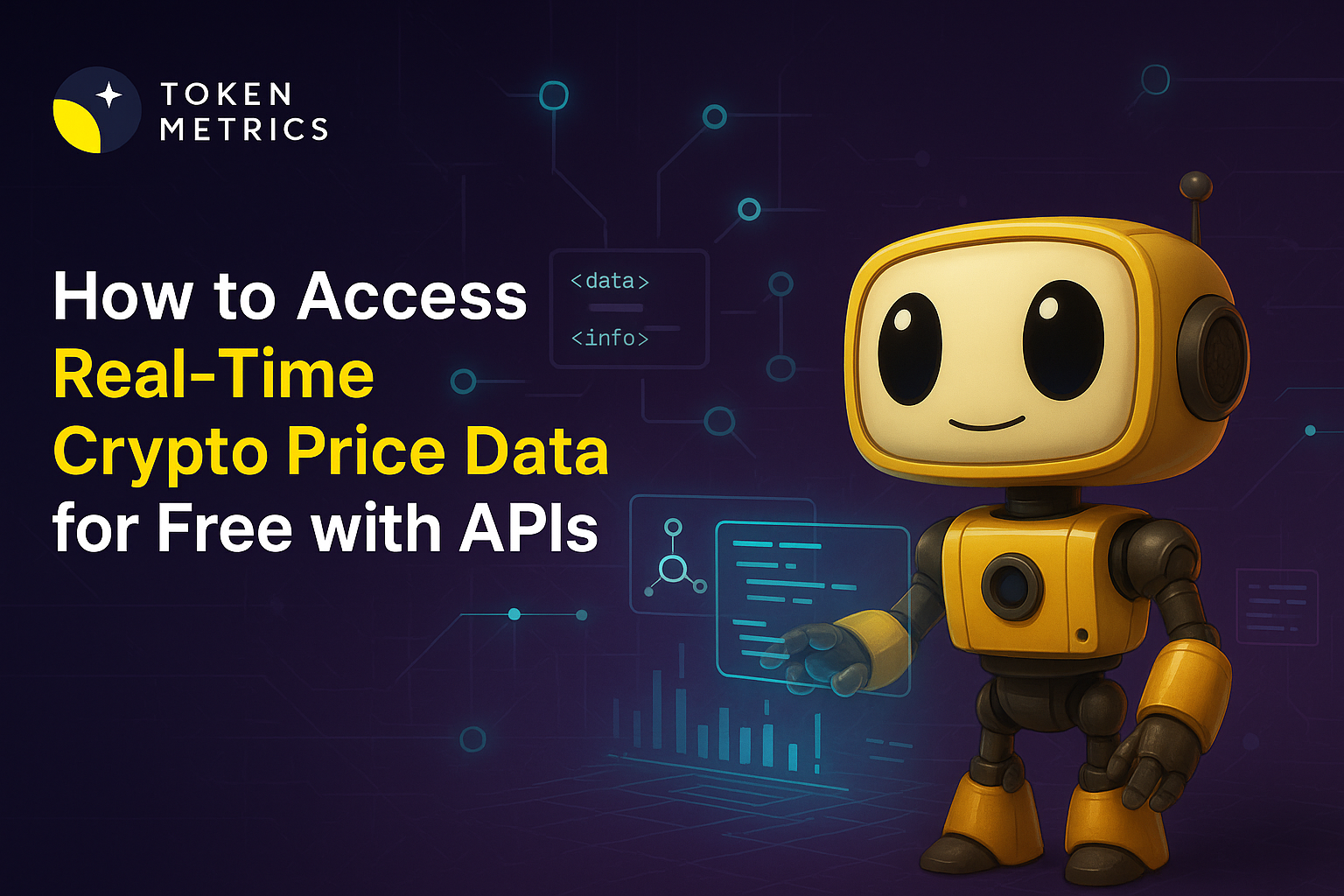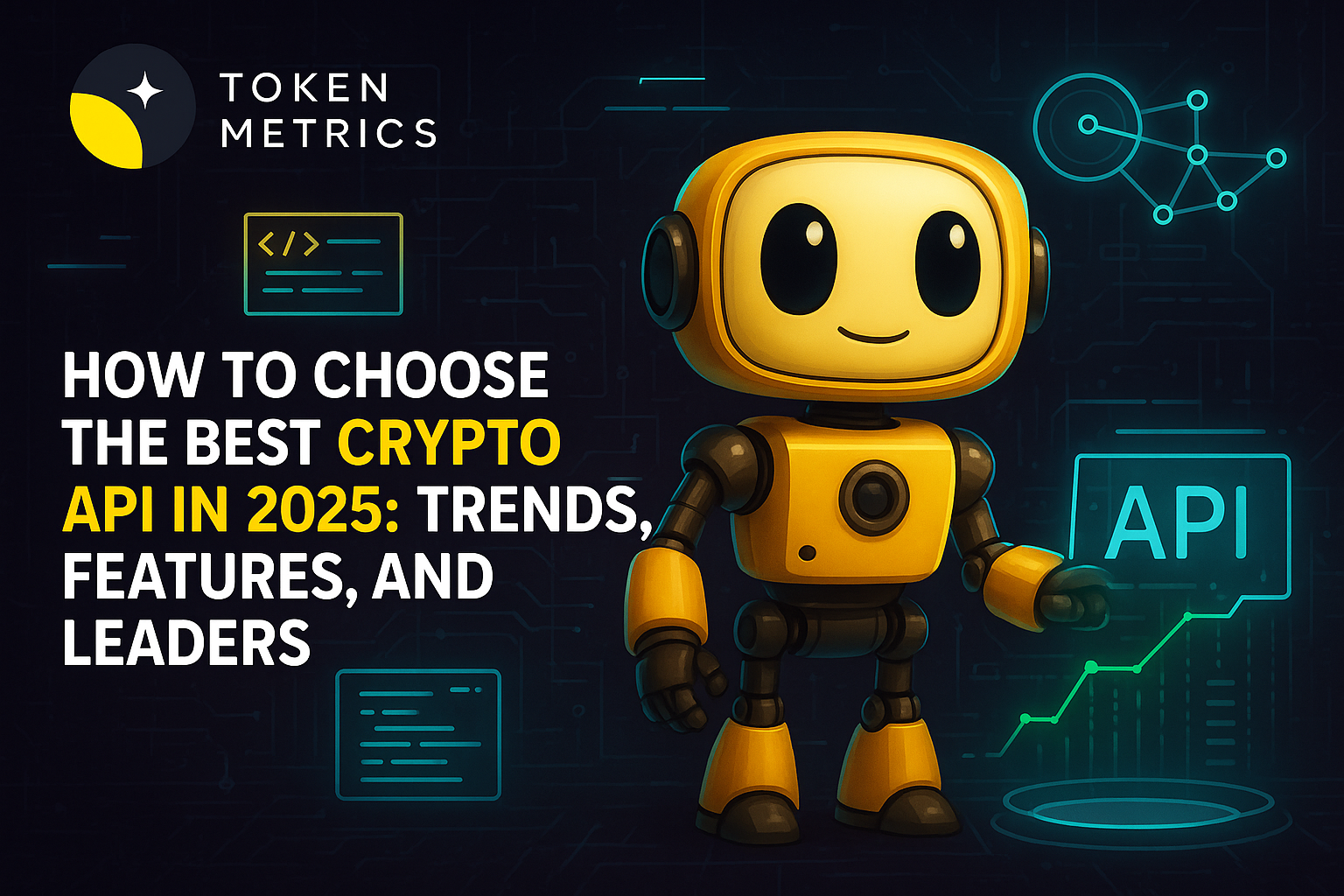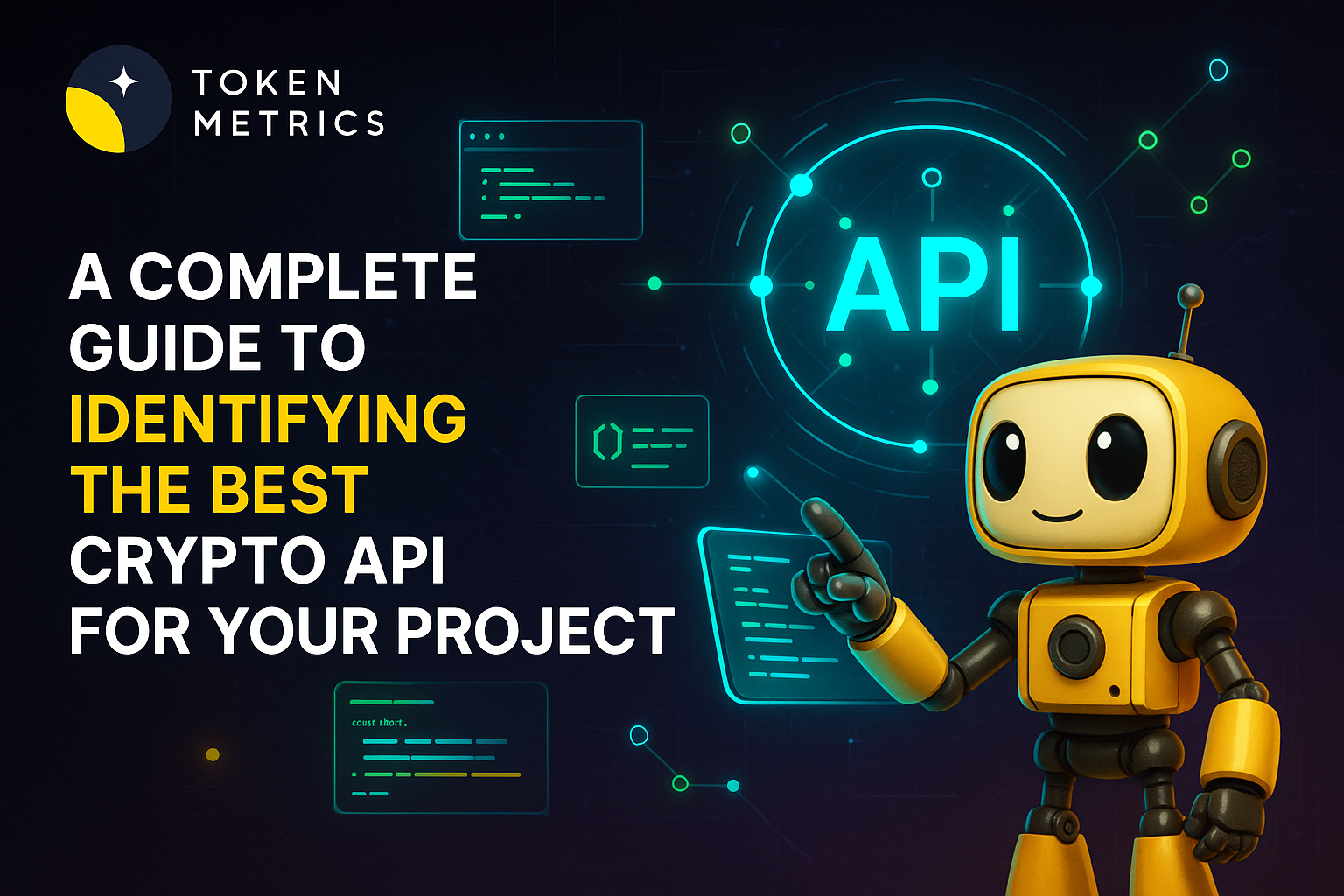Top Upcoming Confirmed Crypto Airdrops 2024 - Token Metrics Moon Awards

Welcome to the Token Metrics Moon Awards! At Token Metrics, we sincerely appreciate the invaluable contribution of our audience and recognize you as our most valuable asset.
What are the Token Metrics Moon Awards?
The Token Metrics Moon Awards represent a prestigious accolade within the cryptocurrency industry, celebrating the exceptional platforms and projects that have made significant impacts in the space.
Token Metrics, a data-driven investment research platform, conducts these awards with the intent to acknowledge and honor the best crypto platforms of the year. The selection process is meticulously designed, leveraging the extensive survey data accumulated from the platform's robust crypto community and its users.
This community-driven approach ensures that the awards reflect real-world crypto enthusiast's opinions and experiences. Through the Moon Awards, Token Metrics amplifies the voice of its community, providing a transparent and user-centric evaluation of the platforms that are truly propelling the industry to greater heights.
In collaboration with our community members and users, we have curated a comprehensive list of the top upcoming confirmed crypto airdrops for 2024 based on survey input and votes.
Understanding Crypto Airdrops
Before we dive into specific projects, let's take a moment to understand what a crypto airdrop is and how it can benefit you. A crypto airdrop is a distribution of free tokens to a specific group of individuals.
Blockchain projects often distribute these tokens as a way to gain exposure, generate interest, and reward early adopters. Participating in a crypto airdrop can be a great way to accumulate tokens without having to invest any money upfront.
The Significance of Crypto Airdrops in 2024
As the cryptocurrency market evolves and matures, crypto airdrops are gaining even more significance. In 2024, we are witnessing a surge in the popularity of airdrops due to several factors.
Firstly, the market is currently experiencing an unprecedented bull run, with Bitcoin leading the way. Experts predict that we are on the brink of the biggest altcoin season ever, presenting investors with ample opportunities to make significant gains in altcoins.
Secondly, the crypto market has surpassed the 1.7 trillion mark, and with the Bitcoin halving and ETF approval on the horizon, it is estimated that the market cap could reach as high as 10-14 trillion.
This presents a golden opportunity for investors to capitalize on the altcoin frenzy and potentially achieve life-changing returns. Participating in well-researched and promising crypto airdrops can be a strategic move to boost your digital asset portfolio.
Top Upcoming Confirmed Crypto Airdrops for 2024
Now, let's dive into the projects that have been confirmed to have upcoming airdrops. Below are some projects worth monitoring that have received the highest number of votes in the Token Metrics Moon Awards survey.

1. Token Metrics
In the Moon Awards survey, Token Metrics airdrop secured the top position with 44.3% of the total votes.
In a recent YouTube video released by Ian Balina, the founder of Token Metrics, it was announced that Token Metrics, a leading platform for AI-driven crypto analysis, is going fully Web3 in early 2024.
This exciting development means that Token Metrics embraces decentralization and offers an airdrop exclusively for its customers.
As a customer of Token Metrics, you will have the opportunity to participate in their airdrop and become part of their Web3 ecosystem.
This development brings together various products, including a trading bot, crypto chatbot, ratings, indices, and a mobile application, all connected through the Token Metrics token. Stay tuned for further details and instructions on qualifying for this exclusive future airdrop.
2. Starknet
In the Moon Awards survey, Straknet airdrop secured 2nd position with 19.8% of the total votes.
- Tech Score: 92%
- Main Narrative: ZK rollups and layer two solutions
- Competitors: Linear, Scroll, Tyco, and Polygon ZKEVM
- Funding and Support: Raised over $100 million at an $8 billion valuation, backed by Paradigm, Sequoia, and Taka Global
Starknet is a scalability solution that operates as an Ethereum ZK rollup. Starknet has garnered significant attention in the crypto community with its impressive tech score and prominent investors. The project is set to make waves with its upcoming airdrop, making it one to watch closely.
3. LayerZero
In the Moon Awards survey, LayerZero airdrop secured 3rd position with 17.6% of the total votes.
- Tech Score: N/A
- Main Narrative: Interoperability
- Competitors: N/A
- Funding and Support: LayerZero Labs secured $120 million in funding
LayerZero is a protocol that facilitates interoperability between various blockchain networks. With its innovative approach and significant funding, LayerZero's upcoming airdrop represents a pivotal moment for increased network participation and adoption.
Also Read - LayerZero Code Review
4. Dymension
In the Moon Awards survey, Dymension airdrop secured 4th position with 7.1% of the total votes.
- Tech Score: 87%
- Main Narrative: Rollups and modular blockchains
- Competitors: Caldera, Outlayer, and Opside
- Funding and Support: Raised $6.7 million with investors like Big Brain Holdings and Cognitive Ventures
Dymension is a blockchain platform specializing in building modular rollup chains. With its strong tech score and notable investors, Dymension's upcoming airdrop presents an exciting opportunity for investors looking to participate in the rollup revolution.
Also Read - Dymension Code Review
5. Peaq
In the Moon Awards survey, Peaq airdrop secured 5th position with 6.7% of the total votes.
- Tech Score: 89%
- Main Narrative: Layer one blockchain for depin
- Competitors: Solana and other leading L1 solutions
- Funding and Support: Raised $6 million with investors like Fundamental Labs
Peaq aims to compete with the leading layer one solution by offering depin layer one functionalities. With its solid tech score and notable investors, Peaq's upcoming airdrop presents a compelling opportunity for investors bullish on depin technologies.
Also Read - Peaq Code Review
6. Movement
In the Moon Awards survey, Movement airdrop secured 6th position with 2.3% of the total votes.
- Tech Score: 85%
- Main Narrative: Aptos and Sui ecosystems
- Competitors: N/A
- Funding and Support: Raised $3.4 million with investors like Borderless Capital and Token Metrics Ventures
Movement is a modular blockchain that utilizes the Move VM and Move programming language. With its unique features and notable investors, Movement's upcoming airdrop is one to watch for those interested in the Aptos and Sui ecosystems.
These are just a few of the top upcoming confirmed crypto airdrops for 2024. Each project offers unique features and potential for substantial returns. Stay tuned for further updates and announcements as these projects progress towards their airdrop events.
Also Read - Movement Review
Conclusion
In conclusion, upcoming crypto airdrops offer an incredible opportunity for investors to generate substantial wealth. By carefully selecting promising projects and leveraging the expertise of platforms like Token Metrics, you can increase your chances of participating in highly lucrative airdrops.
The crypto market is full of exciting opportunities, and airdrops are just one of the many ways to take advantage of this rapidly evolving ecosystem.
Stay tuned for further updates and announcements as these projects progress towards their airdrop events. Buckle up and prepare for the wild ride of upcoming crypto airdrops in 2024!
Disclaimer
The information provided on this website does not constitute investment advice, financial advice, trading advice, or any other advice, and you should not treat any of the website's content as such.
Token Metrics does not recommend buying, selling, or holding any cryptocurrency. Conduct your due diligence and consult your financial advisor before making investment decisions.
Create Your Free Token Metrics Account

.png)




%201.svg)
%201.svg)


%201.svg)










.svg)




.png)